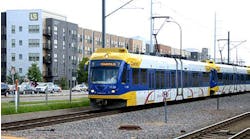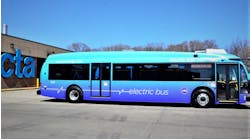Metro officials will now decide how to close a $66 million gap in the agency's operating budget, after a week of town-hall meetings across the region in which riders gave their input on such major cost-cutting proposals as ending bus lines and limiting weekend rail service.
"Cutting services can be very costly in and of itself," Glenmont resident Wes Vernon said at a meeting Wednesday in Wheaton. "It discourages riders to use the system. You can only go so far with that before it becomes self defeating."
The six meetings last week included an opportunity for riders to have one-on-one talks with agency officials and were followed by a town-hall-style forum and a public hearing for official testimony - a program Metro called a "first" in its 35-year history.
Faced with the multimillion-dollar gap in fiscal 2012, Metro officials earlier this year proposed a series of cost-saving measures. Among the most controversial were increases in wait times for weekend rail service, eliminating three D.C. and Maryland bus routes, and cutting the special Anacostia bus fare for a total savings of $7.1 million.
The deadline for final, written comments is 5 p.m. Tuesday. The agency's board of directors is then expected to make a final decision in June, and the changes would begin in September.
Metro's bus, rail and MetroAccess (for disabled riders) systems provide roughly 365 million passenger trips annually, according to the agency. The 103-mile rail system is the second busiest in the country, topped only by New York City's system.
Listening to the town-hall part of the meeting Tuesday at St. Mary Armenian Church in Northwest, Mary Mann said she worried about the elimination of the N8 bus line because that was her form of transportation.
"I don't have a car," she said. "I use this line down to Massachusetts Avenue. I can't walk this distance."
The wait between trains on Saturdays would be extended from 12 minutes to 18 minutes, and on Sundays from 15 minutes to 20 minutes. The wait for trains after 9:30 p.m. on both days would be 25 minutes.
Phyllis Oresky, a renal dialysis social worker at Holy Cross Hospital in Silver Spring, spoke at the Wheaton meeting about a proposed increase in MetroAccess fares. She said that "since dialysis patients use Metrobus consistently every week until they either die or get a transplant," perhaps they could be spared an increased fare.
Copyright 2008 LexisNexis, a division of Reed Elsevier Inc. All rights reserved.
Terms and Conditions | Privacy Policy


